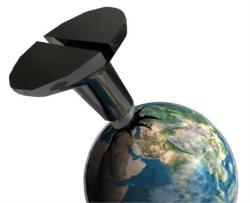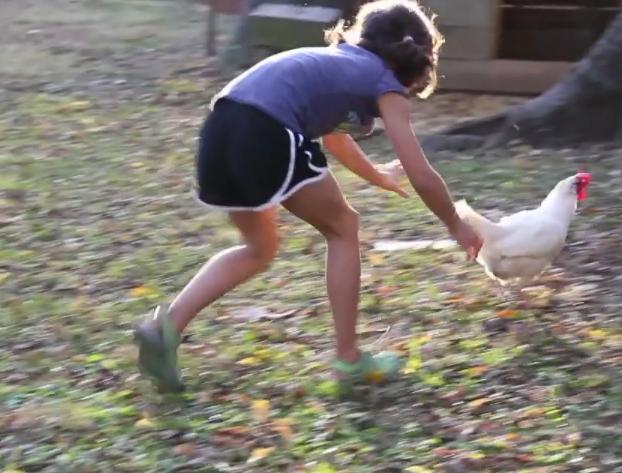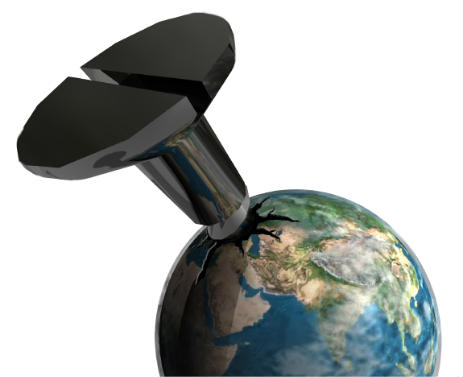
Happy Earth Day, 2012! Many of you have probably glanced at the Mayan Calendar and, upon seeing no 2013, assumed the end is nigh, and this is the last Earth Day. (Why else would John Cussack have agreed to this?) Of course others believe the Mayan calendar ending was a way for Mayans to ensure future calendar sales (I plan to buy one with a kitten) and so we will still need to make preparations for future Earth Days. Staunchly in the latter camp are the organizers of the Planet Under Pressure Conference, a convening of roughly 3,000 scientists from around the world whose State of the Planet Declaration [PDF] promises “new knowledge towards solutions.”
The conference met last month and was organized by The Global Environmental Change Programmes with the International Council for Science. Their goal was to provide some scientific underpinnings for the coming Earth Summit in Rio, to be attended by more than 100 world leaders, but maybe not our own. And while perusing their materials surely begs the question, “What can we learn from people who spell ‘Program’ with an extra ‘M’ and an ‘E’?” it turns out that the funny spelling means some of these people — like Sir John Beddington, the U.K.’s chief scientific advisor, and Phil Bloomer, director of campaigns and policy for Oxfam — are British, have corresponding accents, and are therefor very smart, so we should listen. (The conference, in fact, was in London.)
For busy diplomats preparing for Rio, the declaration distills the findings of the conference down to an easy-to-digest 14 bullet points. Most frank among the groups’s claims, and first of the three major themes addressed in the document, is this: “Humanity has taken a huge leap and become a planetary-scale force,” a statement which at first sounds absolutely awesome and makes me feel — as part of Humanity — like I am in Voltron. Upon further reading, however, it becomes a bit darker.
Since the 1950s, the scientists warn, the weight of human impact has grown to rival the effects of geologic-scale events like ice-ages and Bono’s ego, and this impact has pushed the planet into a new epoch, the Anthropocene, “with potentially catastrophic consequences for our global civilization.” (To watch a nifty video about the Anthropocene, narrated by a woman with a British accent and tracing the new epoch to its roots in, surprise, England, click here.)
Of course, to a reader of Grist, these dark portents may not seem shocking, but what is surprising is the conference’s second major theme: There is hope. The authors believe that “rapid scientific and technological progress can provide potential solutions.” And why not? We, as a scientific society, have walked on the moon, cured polio, completely eliminated the necessity of bread from the sandwich making arts, and developed a potato-cannon capable of firing hotdogs and found friends willing to let us fire them, point blank, into their faces. Truly, we stand on the shoulders of giants, and there is nothing we cannot do.
And the overriding theme of the State of the Planet Declaration is not only that we can right this ship, but rather that, safeguarding Earth’s natural processes, eradicating poverty, and supporting ecosystem health is, “The defining challenge of our age.” Sound goals indeed.
But the council goes on to argue that, while science must guide this process, enacting this change will require more than some technological magic bullet. It will require a massive cultural undertaking. “Innovation alone will not be enough,” say the authors, “We can transform our values, beliefs, and aspirations towards sustainable prosperity.”
And therein lies the third and final theme of the State of the Planet Declaration: We have got to act fast. “[Global] systems can confer remarkable stability and facilitate rapid innovation,” the report states. “But they are also susceptible to abrupt and rapid changes and crises, such as global financial meltdowns or the volatility of the global food system.”
Are the world leaders convening for the Earth Summit in Rio in June willing or able to make the kind of changes necessary to avoid this kind of meltdown? Judging from their preliminary agreement, called the “zero draft,” it doesn’t look good. But individual countries are planning to bring their own commitments to the table, and around the world, people are mobilizing for the cause.
And that is the real takeaway from the Planet Under Pressure Conference’s State of the Planet Declaration. We are staring into the teeth of an imminent global crisis of our own creation and we must act swiftly to avert catastrophe. But we are resourceful beings of limitless creativity and, if we can find a place in our society for Snooki, we are clearly capable of anything. And now, we as citizens of the Earth must band together to enact change, not just at the highest levels of government, but also in our own daily lives, to change the course of the world.
I, for one, am on board. After all I’m banking on at least another 5,126 years, or else I’ve just thrown away money on this 2013-7139 Mayan Kitten-A-Day Calendar.



